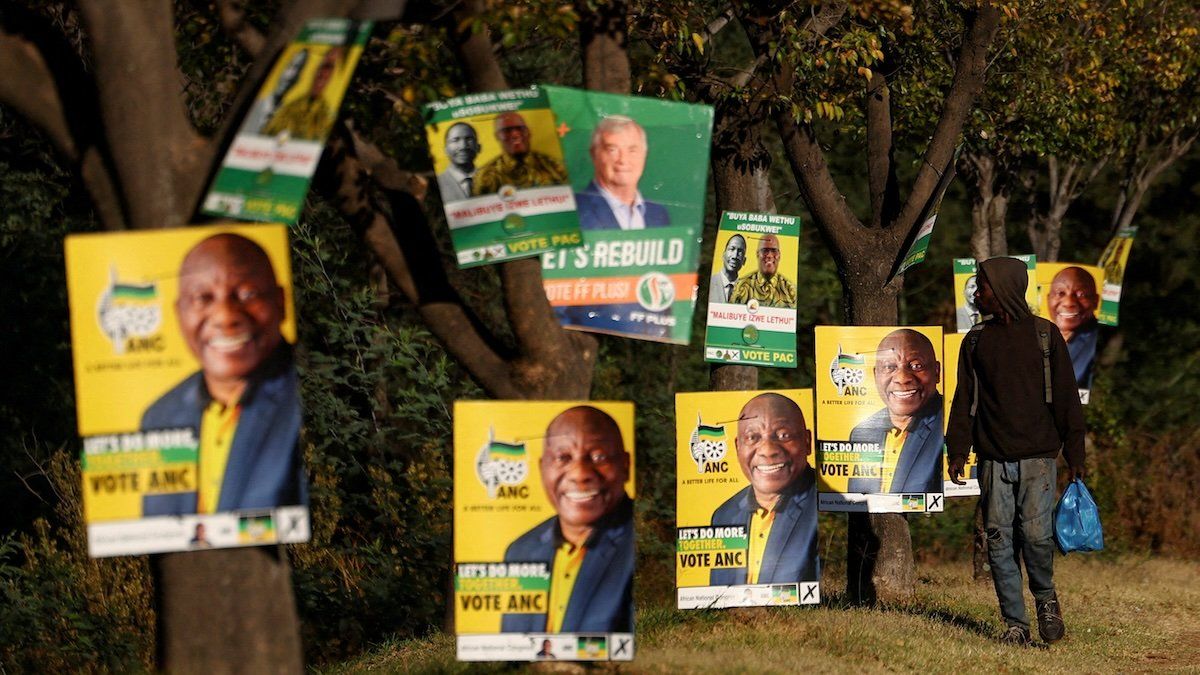The polls are open in South Africa, in the country’s most pivotal election of the post-Apartheid era. Dogged by corruption scandals, power grid failures, high unemployment, and poverty, the African National Congress, once headed by Nelson Mandela, is at risk of losing power for the first time since white-rule ended in 1994.
The left-ish ANC goes into the vote polling at about 43%. Its biggest rivals are the Democratic Alliance (polling at 19%), a largely white-led pro-business party with support among South Africa’s urban middle class; the newly formed uMkhonto we Sizwe party of former ANC leader Jacob Zuma, who is banned from running himself due to graft convictions (14%); and the quasi-Marxist Economic Freedom Fighters (11%).
Could the ANC really lose the throne? Not so fast, says Ziyanda Stuurman, Eurasia Group’s top South Africa expert. She thinks strong rural support will help it squeak over the 50% line. If the ANC gets between 45% and 50%, it will team up with smaller, ideologically aligned parties. A result below 45% would likely force an uncomfortable alliance with either the DA or the EFF. Polls close Wednesday night, and final results will be published on Saturday.
